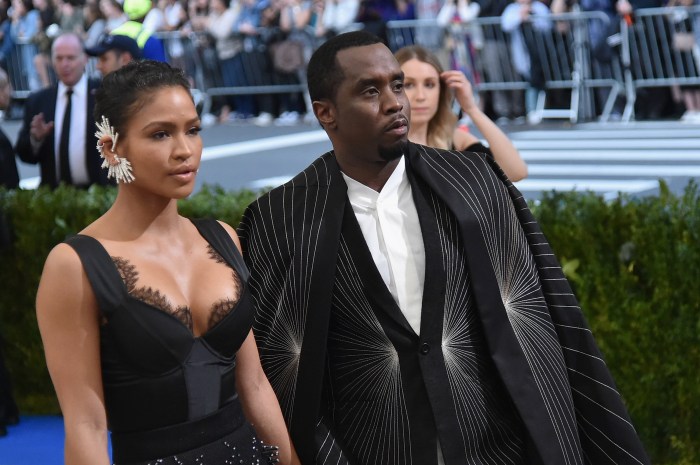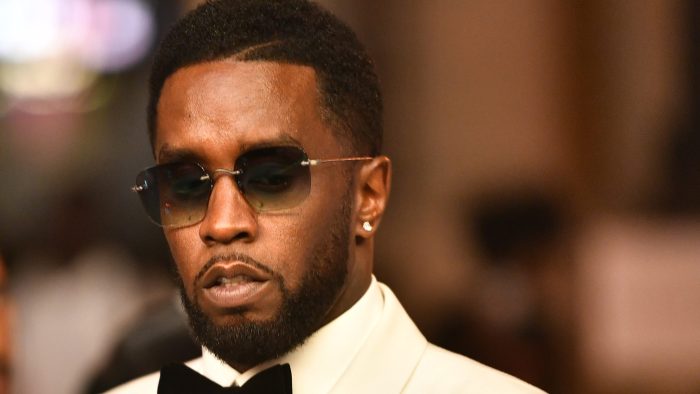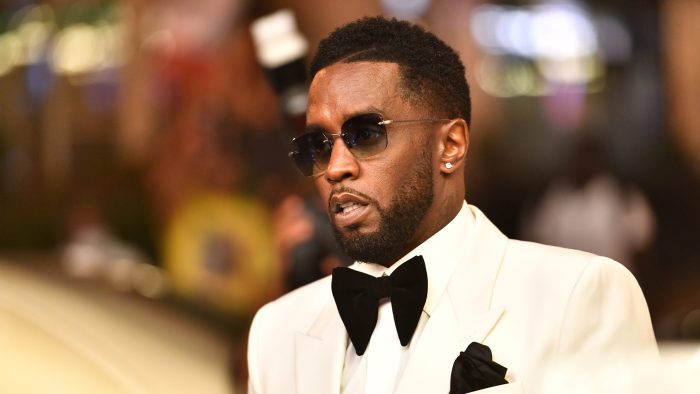There’s an African proverb that says, “Until the lions tell the story, the hunter will always be the hero,” that serves as a contemporary reminder about the power of storytelling. This sentiment feels especially relevant as we continue to learn more about the accusations and federal indictments levied against disgraced music mogul Sean “Diddy” Combs. The stories about Combs and his alleged decades of sexual violence are layered, complicated, and nuanced. And those reporting on the details can shape the narrative and impact how future generations reflect — and learn — from the subject.
Soon after Combs’ former girlfriend Cassie Ventura filed a lawsuit against the Bad Boy Records founder in November 2023 alleging abuse, rapper Curtis “50 Cent” Jackson, announced he was going to produce a documentary about the multiple allegations against Combs. Jackson has had a successful track record of leveraging his rap career into a long-reaching television empire, which includes shows such as Power and BMF on Starz, and ABC’s For Life. I suspect the upcoming documentary on Combs, which has reportedly found a home at Netflix, will resonate with an even larger audience, underscoring the need to relay such a critical matter with great care.
Sean ‘Diddy’ Combs has been indicted on sex trafficking and racketeering chargesRead now
Like with all other true crime stories, Jackson will likely not be the only person tackling Combs’ story. Combs is such a pivotal figure in hip-hop that historians, documentarians, journalists, essayists, and even clout-chasing reckless conspiracy theorists will be unpacking the demise of his legacy for years to come. And rightfully so. He was more than just a music mogul. The very idea of him was powerful: a young Black man who made his way from a party promoter to building one of the most culturally significant and commercially successful record labels in hip-hop history. Now, the legacy of this once iconic businessman grows parallel to the man accused of decades of sexual violence against women and men, harassment, sex trafficking, and other forms of abuse. I suspect the depths of Combs’ depravity has yet to be revealed, but there is still much to dissect. Nevertheless, for the sake of hip-hop history and, most importantly, the survivors in the story, the analysis and deconstruction cannot be mired in sensationalism (like the reaction to the alleged “freak-offs” and obnoxious amounts of baby oil Combs allegedly purchased for sex parties), gossip, or anti-gay bias disguised as jokes. Storytellers are charged with the massive responsibility of getting this right. As a culture, we should arm ourselves with criteria to access the framing selected by those telling the story.
Getting this right, or rather completing an analysis of the multitude of variables that contributed to abuse that allegedly spans decades, is incomplete at best if well-versed experts aren’t adding critical context to what’s being reported. We especially need thought leaders from the Black LGBTQ community to lend their expertise. Their insights can illuminate the intersection of hip-hop culture and LGBTQ issues, enriching the narrative while making the content more inclusive. The abuse allegations against Combs seem to be triggering increased speculation about his sexuality. Navigating through the sea of sensationalism will require clear-eyed analysis from someone who has the range to note which factors are irrelevant to the abuse allegations while identifying anti-gay bias masquerading as care for alleged victims.
“I would hope the documentaries show how the survivors begin to rebuild their lives to show that they can live a stable, healthy life after the abuse.”
— Elsamarie King
A comprehensive analysis also requires incorporating insight from experts who can speak about the correlation between violence against women and hip-hop culture. Brilliant Black feminists such as Joan Morgan and filmmaker dream hampton have been interpreting this complex narrative for decades. In more recent years, authors such as Sesali Bowen, Taylor Crumpton, and Jamilah Lemieux have carried the mantle and offered high-level analysis on the intersection of race, gender, and hip-hop culture. But these are but a few of the women who can lend their expertise to the topic. And although there are only a few of them, there are still thoughtful Black male journalists who have tackled the subject matter carefully. They, too, should be included, not only to provide context but to share in some of the heavy lifting that will be required when exploring violence against women in hip-hop. A documentary about sexual violence against women, in the hands of Jackson, one of the most powerful moguls in hip-hop, would be incomplete without the care and nuance offered by thoughtful Black feminists who also have a body of work that centers hip-hop and Black male journalists unafraid to tell the truth.
 Sean “Diddy” Combs Cassie (right) and Cassie (left) attend the Rei Kawakubo/Comme des Garcons: Art of the In-Between exhibition at the Met Gala at the Metropolitan Museum of Art on May 1, 2017, in New York City.
Sean “Diddy” Combs Cassie (right) and Cassie (left) attend the Rei Kawakubo/Comme des Garcons: Art of the In-Between exhibition at the Met Gala at the Metropolitan Museum of Art on May 1, 2017, in New York City.
Mike Coppola/Getty Images
Nuance is the operative phrase. Contextualizing the thread between the allegations levied at Combs and how systemic racism in the Black community can contribute to the abuse of power by some of hip-hop’s legends is vital for a more comprehensive telling of this story. It is a level of nuance often demonstrated by Black sociologists.
Yet, including the best sociologists, the most prolific Black feminists, and insightful thought leaders from the Black LGBTQ community will not trump the need for special care for the survivors who any upcoming documentary must entail. According to Elsamarie King, a licensed social worker with more than 15 years’ experience working with sex trafficking and domestic abuse survivors, “the emotional and physical well-being of the survivors are on the line every time their story is shared.” King continued, “[ It’s important to make] sure that sharing the story will benefit and not harm the individual. You do not want to retraumatize them.” King further notes that “minimizing and sensationalizing their experience can lead to self-harm, relapses, or thoughts of suicide.”
When asked which key elements she hopes any upcoming exposé about Combs will include, King said, “The lasting impact of the abuse the survivor endured takes years, sometimes even decades to begin to heal. Some survivors have Stockholm syndrome, where they feel sympathy for their abuser and sometimes blame themselves for the abuse. I would hope the documentaries show how the survivors begin to rebuild their lives to show that they can live a stable, healthy life after the abuse.”
The desire for survivors of abuse to have a healthy life, and the overall well-being of those who will view any upcoming documentary should be apparent in these projects. The countless stories of abuse at the hands of someone we felt connected to through our love of hip-hop are not only infuriating, but painful to digest, even more so when the survivors are members of historically marginalized communities.
 Cassie’s lawsuit against Sean ‘Diddy’ Combs is the latest chapter in hip-hop’s uncomfortable history with #MeTooRead now
Cassie’s lawsuit against Sean ‘Diddy’ Combs is the latest chapter in hip-hop’s uncomfortable history with #MeTooRead now
There’s no wound that hurts as much as the one you receive at the hands of a community that should’ve held you and not harmed you. This does not mean that films should not be made about painful experiences. Instead, it means that filmmakers must enter these projects with a care treatment plan for the audience and the survivors. Novelist Alice Walker once stated, “Those who love us never leave us alone with our grief. At the moment they show us our wound they reveal they have the medicine.” Walker made this statement about Zora Neale Hurston’s work. Walker credited Hurston for considering her audience’s pain when she wrote about the atrocities of slavery. Journalist and filmmaker Brooke Obie was the first writer I ever recall adopting this litmus test for critiquing and analyzing films while using it to anchor her assessment about whether a film should be considered trauma porn. I’ve learned to adopt it as an anchor in my writing and use it as a lens when consuming content focused on a painful narrative. Specifically, content that features a harrowing story should offer a place for viewers to place that pain, a sort of medicine for the wound. In this case, exploring what a path to healing for the survivors and for the culture could entail could serve as the balm for viewers.
When dealing with Combs’ case, the necessity of care for the viewers and survivors cannot be overstated, nor can the significance of context from thoughtful experts on the subject matter. If we are going to get it right, then the frameworks mentioned above need to be incorporated. Those empowered with the platform and resources to unpack this narrative should do so with the understanding that their framing could shape future generations. The hip-hop community and, most importantly, sexual assault survivors, deserve these projects to be a manifestation of hip-hop at its best — unafraid to speak truth to power, contextualized and brilliant storytelling that serves as a voice for those whom society often silences.
Shanita Hubbard is a writer, adjunct sociologist, sorors fellow and author of the upcoming book Miseducation: A Woman’s Guide To Hip-Hop.



